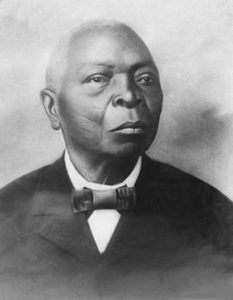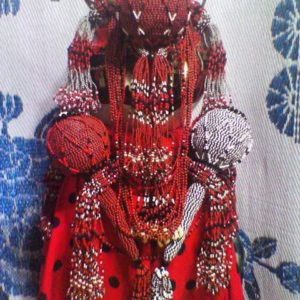SIGNED BY THE COMMUNITY “LUKUMÍ” THE FIRST ECUMENICAL ALLIANCE BETWEEN THE UNITED STATES AND CUBA.
In front of the first edition of the book Ifa published on the island, the Church Lukumi Babalu Aye and Yoruba Ifa Iranlowo sealed in Miami the first Ecumenical Advocacy Alliance between the two countries
In Cuba, it is estimated that there are 1,000 priests and priestesses Lukumís certified by the Church in the United STATES.
After 58 years of estrangement between the followers of the cult of Ifa in Cuba and the United STATES, the Ecumenical agreement constitutes the first religious cooperation bridge between the religious clergy on both sides. Alliance which, in turn, expands to Mexico, a country with wide presence Lukumi which was founded and established the Yoruba Ifa Iranlowo Association.
During an emotional ceremony in which is remembered and honored historical struggles for independence and self-determination of the identity Lukumí, the hierarch of the Church Lukumi Babalu Aye, Oba Ernesto Pichardo, along with the Babalawo Victor Betancourt, President of Yoruba Ifá Iranlowo, paid tribute in Miami to the Babalawos and Cuba Olorisha recognizing Olofin directives, that judgement of both religious leaders they seek to promote order and the legal and social recognition of the followers of this cult in the world.
“As religion we have to organize our home, and our own home is still Cuba because from there we emanate. This agreement allows us to return home, to help our brothers and provide recognition that has not been possible so far in legal terms.

Ño Remigio Herrera Adeshina Obara Meyi photographed in 1891. The only existing photograph of a priest of Ifa of the diaspora born in Africa.
Sharing songs and wisdom of ancestors as Remigio Herrera, known by his religious name Adeshina Cuban slave, it recalled the contributions and efforts of the Lukumi across America community and signed the first agreement of religious empowerment, which among its points seeks support in legal way dissemination and installation of the cult of Ifa in every corner of the world.
“Babalawos owe much to our ancestors and therefore have a duty to dignify the names of people as Adeshina. This so-called ’empowerment Lukumi’ Oba Piché-driven project helps that and invites to expand to reach our place in society”.
“We are a religion that marginalized came to America, and to which the settlers did not give them respite. We so far have always maintained it under a secrecy that harass us and which generates fragmentation, why this historic agreement is so important, because it is the first step to recognition of our culture and our African Customs,”Babalawo Victor Betancourt told the DIARIO LAS AMERICAS.
“Our ancestors were scattered, settlers own fragmented them, did so under the slogan: ‘Divide and rule’.” Why hear talk of the Bantu, the Lukumí, Carabalí, etc. Taught us, it is a historical heritage that carry blood and due to which we are still suffering a great dispersion.
“In the old barracks where lived the African slaves of all ethnicities, our ancestors learned to live together in harmony. They lived as brothers despite the figure of the Mayoral, which forced them to learn catechism and forget their traditions.
Seeking to break what they called “colonial yoke”, and examining directly to a sector of the Catholic Church which according to indicate “refuses to recognize them,” the Ifa cult followers babalawos received official certifications that accredit them legally in the United STATES during the signing of the agreement as priests Lukumí, another historic achievement reached in the diaspora and that continues to expand into Cuba and the world.
“The goal now is to help the Organization of our religious institutions in all countries, respecting its sovereignty within the legal frameworks of each country, but provide support in various areas. What we did with this signing was the hope of many old religious who fought for the union, the recognition and the dignity of our traditions. They could not live to see this moment but us spiritually.
“We are part of a church, not an ‘Association’ of distress. We want to make it clear that we are not already part of those councils that allow us to create under the patronage of the Catholic Church. We are no longer obliged to celebrate and worship events and customs of Catholics. We respect them them and his saints, but our services are Africans and our mission is and will be breaking those colonial retentions. Our mission is fighting for our identity, dignity and the right to self-determination of our people,”said Pichardo.
With a view to continuing to expand priestly recognition of the Lukumi religion, and with eyes on new generations of faithful and priests, the agreement signed between the two religious leaders also seeks to create conditions so that the children and grandchildren of the babalawos practice freely their cults and beliefs.
Agencies/DiarioLasAmericas/Camila Mendoza/Internet Photos/extracts/Arnoldo Varona / TheCubanHistory.com
THE CUBAN HISTORY, FROM HOLLYWOOD.
FOLLOW US ON TWITTER AND FACEBOOK. THECUBANHISTORY.COM
FIRMADA POR LA COMUNIDAD LUKUMÍ LA PRIMERA ALIANZA ECUMENICA ENTRE EEUU Y CUBA.
Frente a la primera edición del libro de Ifá publicado en la isla, la Iglesia Lukumí Babalú Ayé y Yoruba Ifá Iranlowo sellaron en Miami la primera alianza ecuménica entre ambos países
En Cuba se estima que hay 1.000 sacerdotes y sacerdotisas Lukumís certificadas por la Iglesia en EEUU.
Tras 58 años de distanciamiento entre los seguidores del culto Ifá en Cuba y EEUU, el acuerdo ecuménico constituye el primer puente de colaboración religiosa entre el clero religioso de ambas orillas. Alianza que a su vez se expande a México, país con amplia presencia Lukumí en la que fue fundada e instituida la asociación Yoruba Ifá Iranlowo.
Durante una emotiva ceremonia en la que se recordaron y homenajearon históricas luchas por la independencia y autodeterminación de la identidad Lukumí, el jerarca de la Iglesia Lukumí Babalú Ayé, Oba Ernesto Pichardo, junto al Babalawo Víctor Betancourt, presidente de Yoruba Ifá Iranlowo, rindieron tributo en Miami a los Babalawos y Olorishas de Cuba reconociendo las directivas Olófin, que juicio de ambos líderes religiosos, buscan promover el orden y el reconocimiento jurídico y social de los seguidores de este culto en todo el mundo.
“Como religión tenemos que organizar nuestra propia casa, y nuestra propia casa sigue siendo Cuba porque de ahí emanamos. Este acuerdo nos permite regresar al hogar, ayudar a nuestros hermanos y proveer un reconocimiento que no ha sido posible hasta ahora en términos jurídicos.

Ño Remigio Herrera Adeshina Obara Meyi fotografiado en 1891. La única foto existente del Sacerdote de Ifa fuera de su país nacido en Africa.
Compartiendo cantos y sabiduría de ancestros como Remigio Herrera, esclavo cubano conocido por su nombre religioso Adeshina, se recordaron las contribuciones y esfuerzos de la comunidad Lukumí en toda América y se firmó el primer acuerdo de empoderamiento religioso, que entre sus puntos busca respaldar de manera jurídica la difusión e instalación del culto de Ifá en cada rincón del mundo.
“Los babalawos les debemos mucho a nuestros ancestros y por eso tenemos el deber de dignificar los nombres de personas como Adeshina. Este proyecto de denominado ‘Empoderamiento Lukumí’ impulsado por Oba Pichado ayuda a eso e invita a expandirnos para alcanzar nuestro lugar en la sociedad”.
“Somos una religión que entró marginada a toda América, y a la cual los colonizadores no les dieron respiro. Nosotros hasta ahora la hemos mantenido siempre bajo un hermetismo que nos hostiga y que genera fragmentación, por eso este acuerdo histórico es tan importante, porque es el primer paso al reconocimiento de nuestra cultura y nuestras costumbres africanas”, afirmó el Babalawo Víctor Betancourt al DIARIO LAS AMÉRICAS.
“Nuestros antepasados fueron dispersados, los propios colonos los fragmentaron, lo hicieron bajo el lema: ‘Divide y vencerás’. Por eso escuchamos hablar de los Lukumí, los Bantú, los Carabalí, etc. Nos enseñaron así, es una herencia histórica que llevamos en la sangre y debido a la cual seguimos sufriendo una gran dispersión.
“En los barracones antiguos donde convivían los esclavos africanos de todas las etnias, nuestros antepasados aprendieron a convivir en armonía. Ellos vivían como hermanos a pesar de la figura del Mayoral, que los obligaba a aprender catecismo y a olvidar sus tradiciones.
Buscando romper lo que denominan “yugo colonial”, e interpelando de manera directa a un sector de la Iglesia Católica que según indican “se niega a reconocerlos”, los babalawos seguidores del culto de Ifá recibieron durante la firma del acuerdo certificaciones oficiales que los acreditan legalmente en EEUU como sacerdotes Lukumí, otro logro histórico alcanzado en la diáspora y que se sigue expandiendo a Cuba y el mundo.
“La meta ahora es ayudar a la organización de nuestras instituciones religiosas en todos los países, respetando su soberanía dentro de los marcos jurídicos de cada país, pero proveyéndonos apoyo en diversas áreas. Lo que logramos con esta firma fue la esperanza de muchos viejos religiosos que lucharon por la unión, el reconocimiento y la dignidad de nuestras tradiciones. Ellos no pudieron vivir para ver este momento pero nos acompañan espiritualmente.
“Somos parte de una Iglesia, no una ‘asociación’ de socorro. Queremos dejar claro que ya no formamos parte de esos cabildos que nos permitían crear bajo el patrocinio de la iglesia Católica. Ya no estamos obligados a celebrar y venerar los eventos y costumbres de los católicos. Los respetamos a ellos y a sus santos, pero nuestros cultos son africanos y nuestra misión es y será romper esas retenciones coloniales. Nuestra misión es luchar por nuestra identidad, dignidad y el derecho a la autodeterminación de nuestra gente”, afirmó Pichardo.
Con miras a seguir expandiendo el reconocimiento sacerdotal de la religión Lukumí, y con los ojos puestos en las nuevas generaciones de fieles y sacerdotes, el acuerdo firmado entre ambos líderes religiosos también busca crear las condiciones para que los hijos y nietos de los babalawos practiquen con total libertad sus cultos y creencias.
Agencies/DiarioLasAmericas/Camila Mendoza/Internet Photos/Extractos/Arnoldo Varona/ TheCubanHistory.com
THE CUBAN HISTORY, DESDE HOLLYWOOD.








